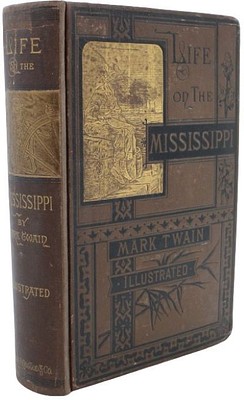(2) American Revolutionary War Signatures 1700’s
About Seller
522 South Pineapple Avenue
Sarasota, FL 34236
United States
Sarasota Estate Auction specializes in a wide variety of furniture, antiques, fine art, lighting, sculptures, and collectibles. Andrew Ford, owner and operator of the company, has a passion for finding the best pieces of art and antiques and sharing those finds with the Gulf Coast of Florida.
Two ways to bid:
- Leave a max absentee bid and the platform will bid on your behalf up to your maximum bid during the live auction.
- Bid live during the auction and your bids will be submitted real-time to the auctioneer.
Bid Increments
| Price | Bid Increment |
|---|---|
| $0 | $10 |
| $100 | $25 |
| $250 | $50 |
| $1,000 | $100 |
| $2,500 | $250 |
| $7,500 | $500 |
| $20,000 | $1,000 |
| $50,000 | $2,500 |
| $100,000 | $5,000 |
| $250,000 | $10,000 |
About Auction
Aug 5, 2023
Featuring a Lifetime Collection of Early American Pottery, a Fantastic Georg Jensen Sterling Tea Set - 23 OZT, Important Books and Ephemera, and Exquisite Estate Jewelry. Also including art from artists including Roy Lichtenstein, Camille Pissarro, Karel Appel, Victor Vasarely, and many more. Sarasota Estate Auction sarasotaestateauction@gmail.com
- Lot Description
This lot consists of two signatures from noted supporters of the American Revolutionary War: Reverend Jonas Clark and John Muzzy. They were prominent figures in Lexington at the early stages of the war. Jonas Clark (1730 - 1805) was an American clergyman and political leader who saved the lives of John Hancock and Samuel Adams during the Battle of Lexington, the very first battle of the Revolutionary War. Reverend Clark - sometimes spelled Clarke - graduated from Harvard in 1752 and became the third pastor of the Church of Christ in Lexington in May, 1755. He married Lucy Bowes Clarke, a cousin of John Hancock, who was a statesman and one of the founding fathers of the Revolution, and Hancock was staying at Clark’s home when the Battles of Lexington and Concord broke out in 1775. Clark was an eloquent supporter of the colonial cause, and on the evening of April 18, 1775, Hancock and Adams had attended the Massachusetts Provincial Congress in Concord and were wary of returning to Boston, so they were guests of Rev. Clark for the night. Fearing they might be captured by the British, Dr. Joseph Warren of Boston dispatched William Dawes and Paul Revere to Lexington with news of the advancing British troops; arriving separately around midnight, Dawes and Revere stopped to warn Hancock and Adams, then set off for Concord. Hancock and Adams made their way from Lexington to Burlington to avoid capture. The Battle of Lexington started the next day, and that was the spark that set off the American Revolution. The battle broke out because the British had ordered troops to seize weapons from the town of Concord and to capture Adams and Hancock from the town of Lexington - Adams and Hancock were considered rebel leaders by the British, and their capture might have quelled the American upstarts. Clark’s home in Lexington still stands and is known as the Hancock-Clarke House; it is now listed as a National Historic Landmark and is a symbol of the patriotism of Clark and Hancock during the war. In 1780 Reverend Clark also helped pen the Constitution of Massachusetts and John Hancock became the first governor of Massachusetts. The note from Reverend Clark says “To Heaven the appeal was made! By Heaven the claim was supported! Rev. Jonas Clark”, and it measures 2 7/8 x 7 in. wide. John Muzzy (1714 - 1789) was born in Lexington and served with the Massachusetts Militia during the American Revolution. He moved to Rutland, Mass. in 1739 and Spencer, Mass. in 1752, where he served as town clerk, assessor, and as a court representative, and he was made deacon a year later. He was also one of the Lexington company that fought the British in April 1775, he fought in Cambridge in 1776 and at Bennington in August, 1777. His father was Benjamin Muzzy, who opened the first Public House in Lexington - a tavern - it was later operated by John, and later by John’s granddaughter and her husband, John Buckman. It is still in existence and known as the "Buckman Tavern”, and the tavern was the rendezvous of the Minutemen and where Paul Revere rode to to give the alarm that the British were coming. It faces the green where the battle of Lexington was fought. John and his son Isaac were among the Minutemen who fought the British on Lexington Green and where the first shots of the American Revolution were fired. Isaac was one of the eight men killed on the green by the British regulars; he was only 30 years old at the time, and his name is inscribed on the Lexington Green monument that marks the spot where he and the seven others died. That was the very first battle of the Revolutionary War. The monument was erected in 1799 by the inhabitants of Lexington in memory of the eight who were killed in the battle. The note measures about 2 x 7 5/8 in. wide and it reads “Lexington Febr ry 1777. Then Rec’d of Levi Harrington Eleven Shillings in full of all accounts John Muzzy”, so John was being paid money owed to him by Levi Harrington, another Lexington native who served in the Massachusetts Militia during the Revolutionary War. So lots of Lexington and Revolutionary War history in these two signed notes. #3542 #76
- Shipping Info
-
SHIPPING INFORMATION·
Sarasota Estate Auction IS NOT RESPONSIBLE FOR SHIPPING. All shipping will be handled by the winning bidder. Sarasota Estate Auction recommends obtaining shipping quotes before bidding on any items in our auctions. If you are interested in obtaining any information on local shippers, please send us an email and we will kindly send you a list of local shippers. Refunds are not offered under any circumstances base on shipping issues, this is up to the buyer to arrange this beforehand.
Premier Shipping, info@premiershipment.com
-
- Payment & Auction Policies
-
Available payment options
We accept all major credit cards, wire transfers, money orders, checks and PayPal. Please give us a call at (941) 359-8700 or email us at SarasotaEstateAuction@gmail.com to take care of your payments.
-
- Buyer's Premium



 EUR
EUR CAD
CAD AUD
AUD GBP
GBP MXN
MXN HKD
HKD CNY
CNY MYR
MYR SEK
SEK SGD
SGD CHF
CHF THB
THB

















